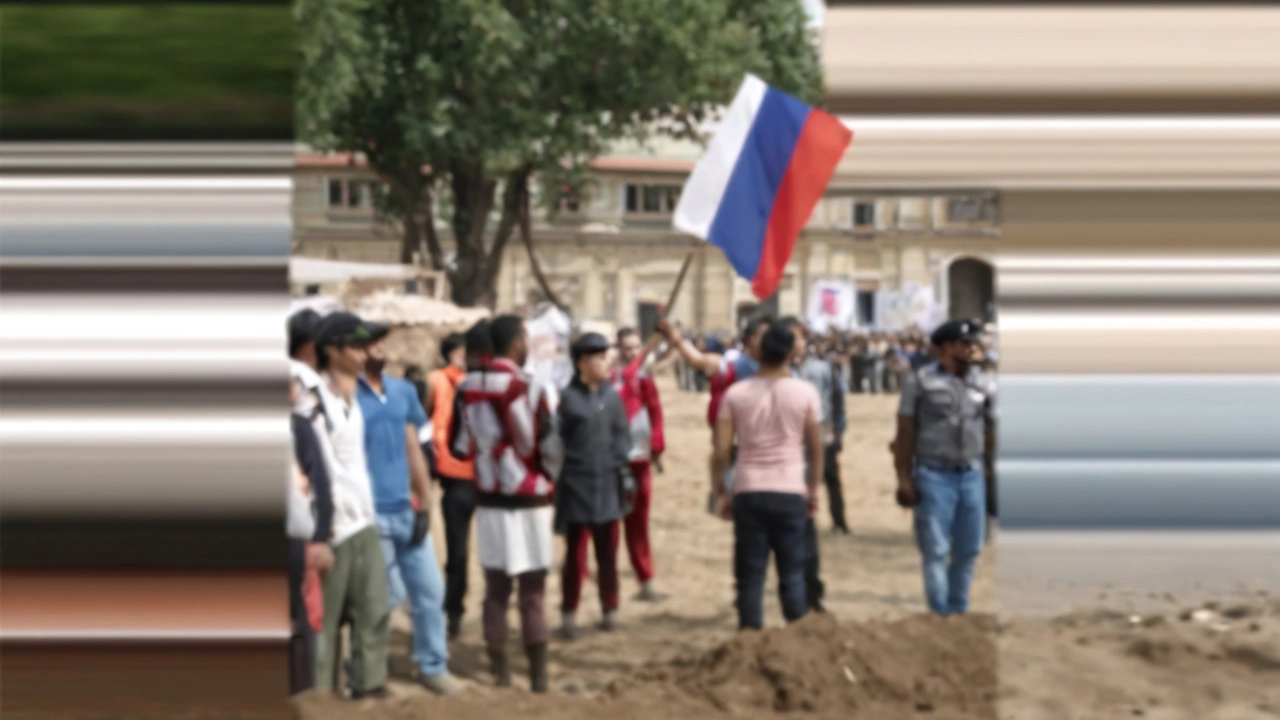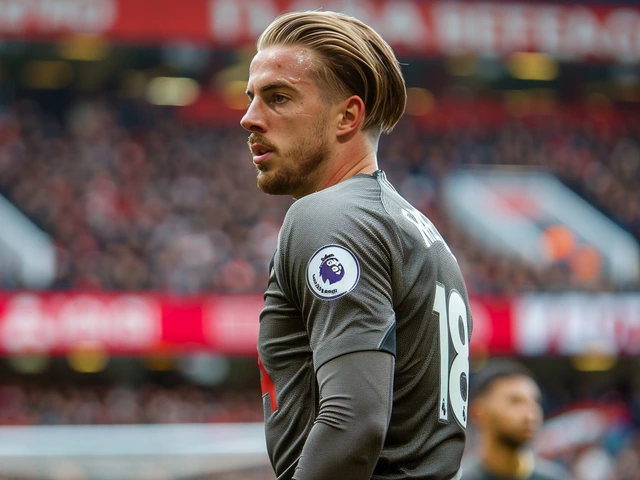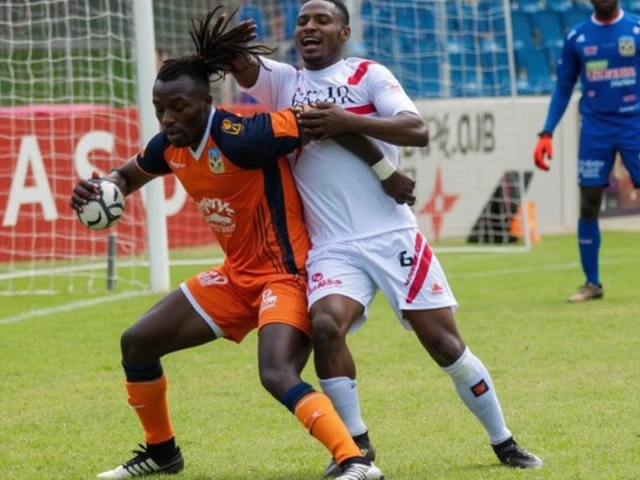Background on the Protests
The arrest of tailors in Nigeria has drawn significant local and international attention, shedding light on the widening gap between the government and its citizens. The protests were triggered by President Bola Tinubu's economic reforms, which many Nigerians believe have exacerbated economic hardships. What started as sporadic demonstrations has now evolved into a nationwide movement seeking changes in economic policy and greater accountability from the government.
The Role of Russian Flags
One peculiar element that has caught the authorities' eye is the appearance of Russian flags during these protests. While it's not entirely clear why demonstrators have chosen this symbol, it has nonetheless raised alarms within the government. Officials argue that the use of foreign symbols, particularly those from Russia, could indicate external influences aiming to destabilize the country.
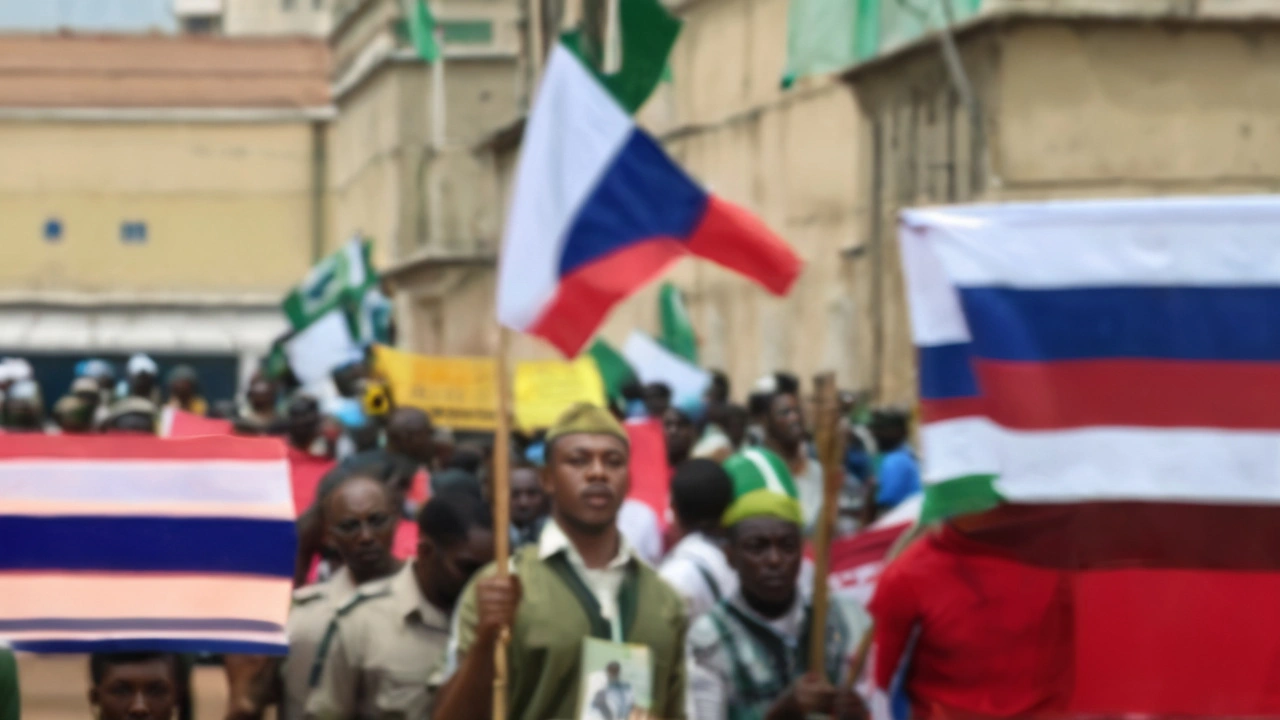
Government Crackdown
In response to these activities, the government has stepped up its efforts to control the narrative and maintain order. Heightened surveillance measures were implemented, leading to the arrest of multiple tailors accused of making the Russian flags. This aggressive crackdown has been justified by the authorities as a necessary measure to prevent foreign interference and safeguard Nigeria's sovereignty.
Impact on Civil Liberties
However, this approach has sparked a significant backlash from civil rights organizations. Critics argue that the arrests are a blatant violation of freedom of expression and assembly, fundamental rights enshrined in Nigeria's constitution. The clampdown has also led to more severe actions, such as the use of tear gas against protesters and curfews in several northern states.
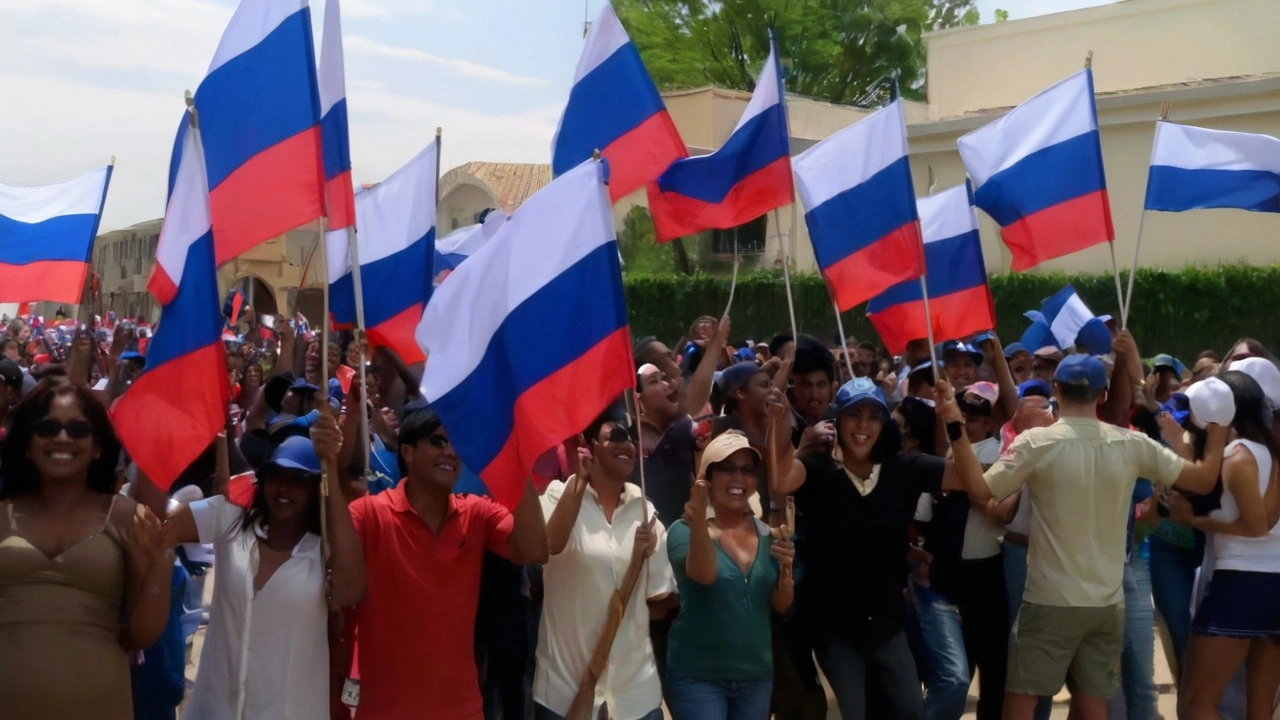
International Concerns
These developments have not gone unnoticed by the international community. Analysts and diplomats alike are closely monitoring the situation, as it poses significant implications for Nigeria's political stability. There is growing concern that the government's tactics could backfire, potentially leading to greater unrest and wider discontent among the populace.
Civil Society's Response
Nigerian civil society organizations have been vocal in their condemnation of the government's actions. They argue that rather than stifling dissent, the authorities should engage in dialogue with the protesters to address their grievances. The call for an inclusive approach resonates with many Nigerians, who believe that open communication is essential for resolving the ongoing crisis.
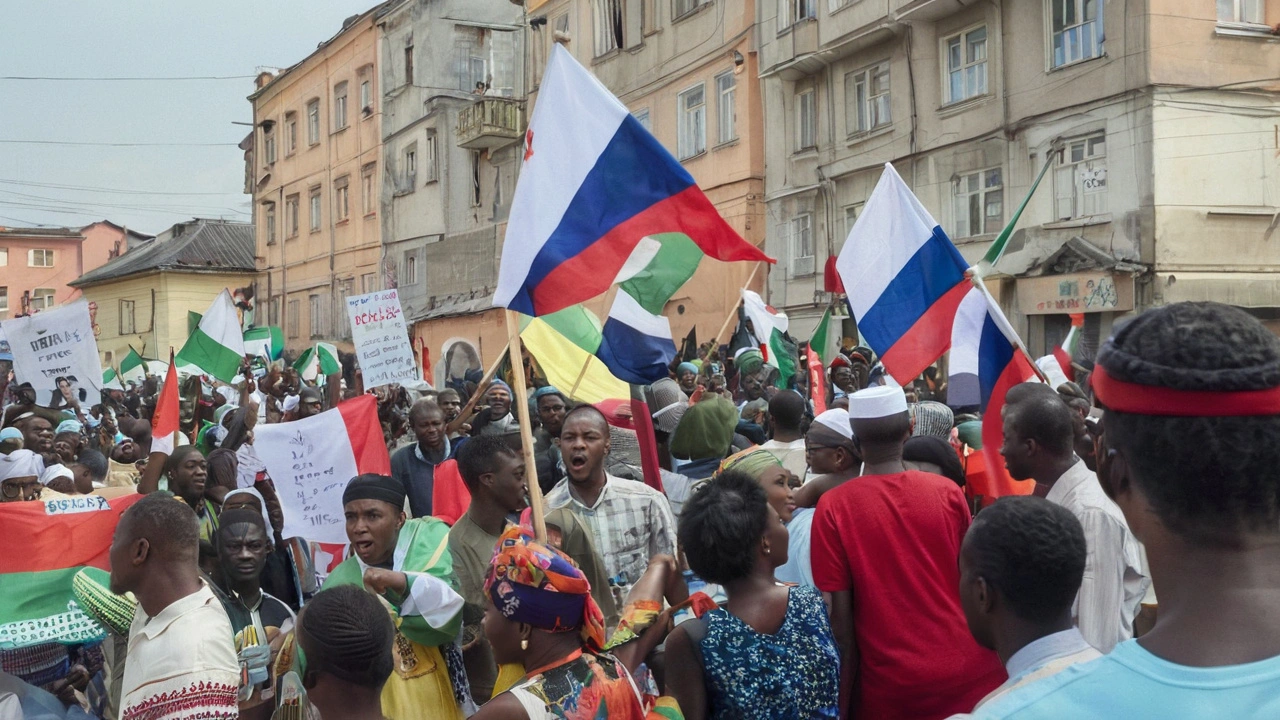
Economic Implications
The economic reforms at the heart of the protests have had far-reaching impacts on the daily lives of Nigerians. Measures such as the removal of subsidies and increased taxation have placed a significant burden on citizens, particularly those in lower-income brackets. The rising cost of living has fueled discontent, prompting many to take to the streets in protest.
Future Outlook
As the situation continues to evolve, the future remains uncertain. The government's willingness to engage with protesters and address their concerns will likely play a crucial role in determining the outcome of this crisis. For now, all eyes remain on Nigeria, as the world watches to see how this unfolding drama will shape the nation's future.

